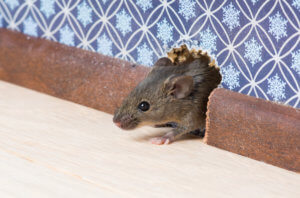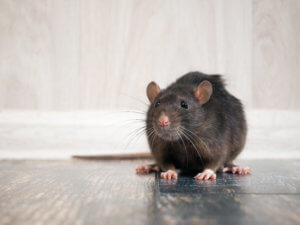Well done on considering a natural form for rodent control! Adding a cat to your lineup can be one of the most effective solutions to dealing with a rodent issue. Cats have been helping humans with rodent control for the past 10,000 years, so why not continue the tradition!
The goal with this article is to help you in choosing a proper cat for the job and in understanding what type of commitment you are getting yourself into. Alright, let’s dig into some questions that you are probably asking yourself!
Where should I look for a cat?
The best place to look for a cat would be any nearby shelters. Over a million plus cats are euthanized each year in shelters in the United States. It would be great if you could give a cat a second chance.
In fact, some cities actually have placement programs where sheltered can be brought in and acclimated (for a cost) to your warehouse or backyard specifically for rodent control. These programs have had great success, though are typically used for industrial type jobs. This is certainly something that you should look into if you have a business that is losing money due to rodent damage or if you have a severe rodent infestation on your property. Try googling “Cats at Work” or “Working Cats” to see if there are any of these programs in your area.
What breed of cat is the best for catching rodents?
There are many lists out there that suggest the following breeds will be the most effective in killing rodents:
- American Shorthair
- Siberian
- Maine Coon
- Chartreux
- Siamese
- Burmese
- Manx
- Turkish Angora
- Persian
- Japanese Bobtail
Now before you rely solely on this list, it ultimately comes down to the temperament of the cat and your ability to gauge this in the selection process. Some cats just don’t have the drive in them to hunt the vermin no matter what the breed is. The above list may generalize the breeds of cats that typically are good at and like to hunt rodents, but it isn’t going to guarantee that you are purchasing a true killer.
How will I know if a specific cat will be good at killing rodents?
The following will be your number one determinant on whether this is going to be the right cat for you. When you go to initially meet the cat at the shelter, be sure to take a toy mouse with you (and maybe put it on a string or a stick). It is important that you closely observe the cats behavior when playing with the pet mouse. You want a cat that is showing signs of the killer instinct towards the toy mouse such as: studying every move of the mouse, being completely focused on it and undistracted by other noises, sneaking up to it and pouncing, clawing with accuracy, biting the mouse and shaking it around in its mouth, etc. The process here is kind of common sense but after playing with a few cats, you will be able to pick up the differences on which ones may be true killers.
Should I get an indoor or an outdoor cat?
I would highly suggest getting an outdoor cat. You should ask the shelter for any background information they have on the cat to help determine if the cat was raised outdoors. Outdoor cats are more likely to be trained by their mother to hunt as a matter of survival and posess the skills you need to “get them rats”.
Should I get a kitten or a full grown cat?
It is super important that you do not get a kitten unless you are willing to adopt the mother as well. Cats learn their hunting skills from their mother. You should certainly test the temperament of the mother as well to help determine if this kitten will receive the right type of training. Kittens are also prey to certain predators such as hawks, owls, and coyotes, so you have to worry about that as well.
You would be best off getting an adult cat at least the size of a rabbit that shows signs of the killer instinct.
How will I get the cat to not run away?
When you first get the cat you will need to acclimate it to its new home. You should get a large crate that has enough room for the cat to move around and play, as well as a litter box, scratching post, toys, bed and food. Once the cat is in the crate throw an old t-shirt in there so that the cat will start to get used to your scent.
You will want to keep the crate in a safe and sheltered location. Be sure to keep the litter box clean. The cat should be kept in the crate for about a week. Once you let the cat out it will probably disappear for a day or two to explore the area. During this period be sure to keep the food bowl stocked and the fresh water available. The cat will come back to feed when it needs to, but the cat ultimately needs to understand that food will always be available at home.
Will I still need to take care of the cat?
YES. You will need to consistently provide food and water. This helps to ensure that the cat will stick around. You should also keep up to date with all shots, vaccinations, de-worming, and flea medication.
Should I worry about feeding the cat too much? I don’t want to dissuade the cat from hunting if it is already getting enough food.
This is not something that you should worry about. If your cat has the killer instinct it will do so just for fun and not solely because it is hungry.
Should I neuter/spay my cat?
Yes. Cats that have been “fixed” are more likely to not run away. Also, you should do what you can to try and help control the cat population.
Does it make a difference getting a male or female?
It actually does. Females cats typically hunt more frequently than males.
Rodents carry many diseases that can be transmitted to humans. Could these diseases be transferred to the cat?
Potentially, yes. This is why it is super important to keep up with shots, vaccinations, de-working and flea medication. A factor here as well, will be whether your cat actually eats the rodents it kills or just kills them for fun.
Also if you are pregnant, please be SUPER careful when cleaning up the litter box of a mouser cat (or maybe even get your baby daddy to clean it!). Toxoplasmosis can be transmitted to humans through the feces of cats who have contracted the disease from mice they have eaten. Taxoplasmosis has been known to cause birth defects, so again please be careful.
Will just the presence of a cat scare rodents away?
Actually yes, but it is more due to the cat leaving their scent everywhere. The scent can act as a rodent deterrent.
I hope that this information has been helpful. For any questions/comments, please drop a note below!
Thank you!!
-Rat King Dave
This page contains Amazon Affiliate links. I will receive a commission for any purchases made through these links, though at no additional cost to you.






I have two cats, male and female, both are adults and strictly indoor cats. We have a rat problem in the house and they could care less. Makes me nuts.
Hi Glenda! I’m so sorry for never responding to you. I took a leave of absence from being Rat King, but now I am back! Agh, yeah most indoor cats aren’t properly trained to hunt by their mothers so they don’t necessarily learn to use their “killer” instincts. I hope by now you have figured out how to handle the rat problem in your house. It can be a bit tricky if you have other pets around. The first thing is to try and locate where the rodents nest are and from there you can extrapolate if traps or poison bait stations can be placed in safe places out of reach from your pets. I would also try and locate where the rats initially entered the house. Take a look around the perimeter of your house for any potential point of entry (e.g. rats can fit through a hole the size of a quarter). Once eny entry points are found you need to bloc them up with installing a steel mesh or stuff the hole with excluder steel wool. I hope this help and sorry again for the delay. If you have further questions/comments, I am here now. Thank you! RKD